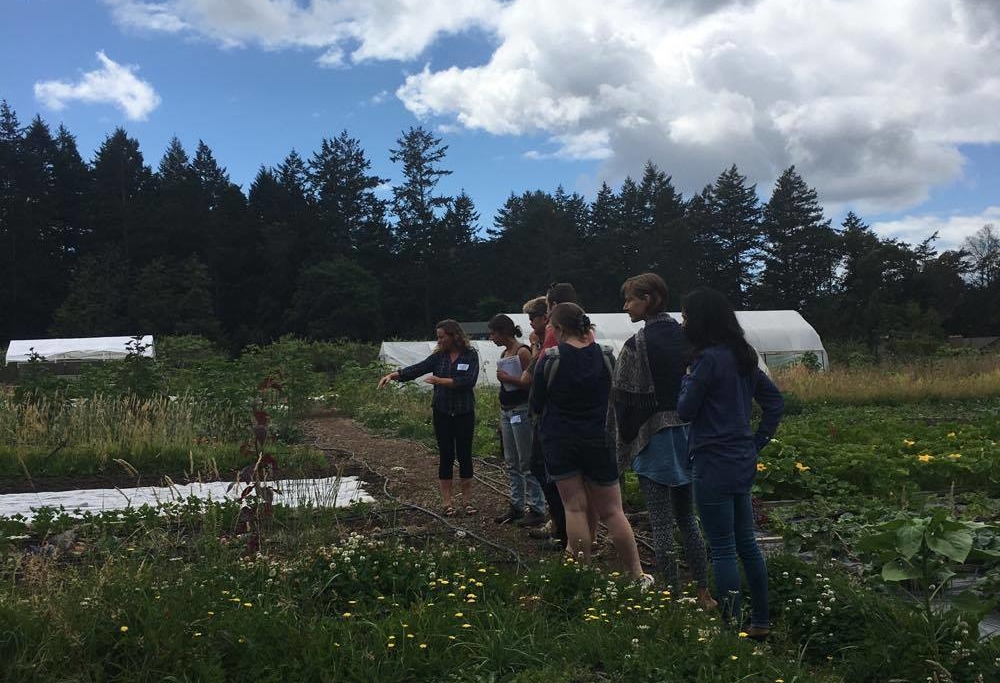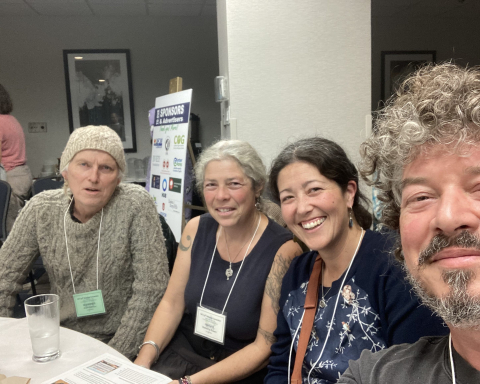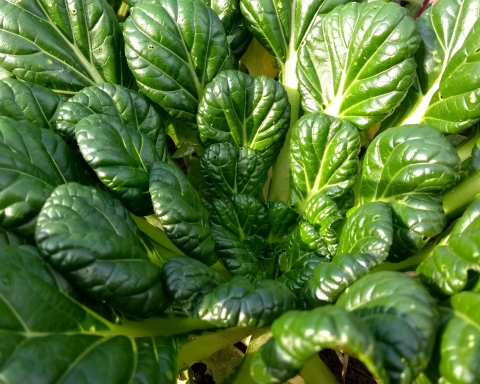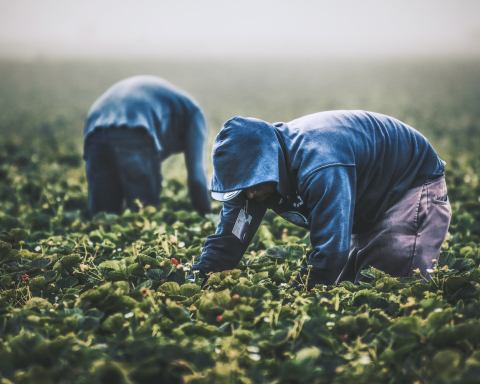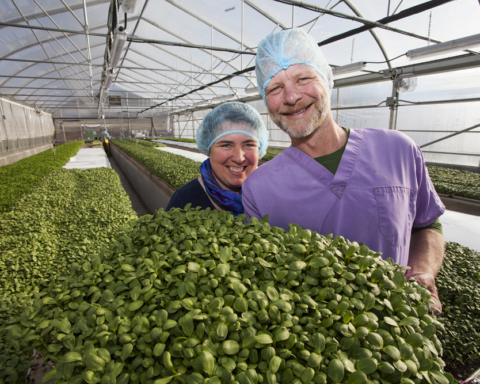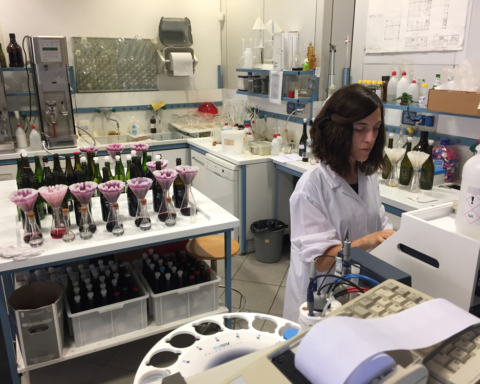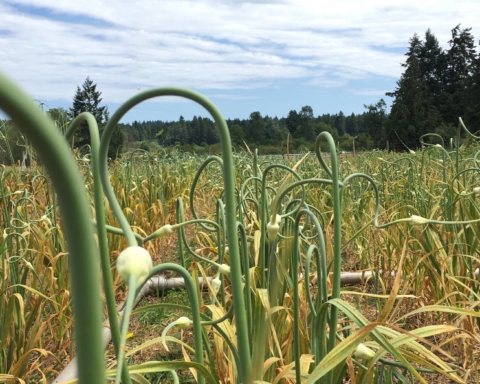Charles Z Levkoe and Michael Ekers
Originally published by Ecological Farmers Association of Ontario in “Ecological Farming in Ontario”. This is part 3 of a 4 part series on research into unpaid farm labour. While the research was conducted with farms in Ontario, much of the findings likely carry over to BC.
This article is the third in a series that describes the increasing numbers of non-waged interns working on ecological farms across Ontario. As farmers welcome those seeking seasonal farm experiences as a way to share knowledge and skills and to meet labour demands, our research has been exploring the broader implications of these trends. In this article, we look at who exactly is being trained to farm through ecological farm internships and the potential impact on the future of food and farming.
Opportunities for non-waged internships are typically promoted on environmental-related websites and passed on through word-of-mouth. Despite being openly available, there is an extremely narrow demographic of individuals who take on these positions. Likely unsurprising to most farmers, the vast majority of non-waged interns in Ontario are young, white women (and some men) that come from relatively educated and affluent backgrounds. As one farmer exclaimed, “White, middle-class, female, educated, suburban, that was almost all of our interns. Out of the 21 interns we have had, I think we only had four men over the last three years.” The only major exception is interns working on urban farms who are almost exclusively young people of colour with diverse and sometimes poor economic backgrounds.
This demographic trend raises questions about who is being trained as the next generation of ecological farmers. When asked why so many non-waged interns were white, one farmer responded, “Well, have you seen the society I live in? It’s predominately white and these are the people who have the opportunity to be able to leave their home and not work.” Taking four to eight months away from paid employment and living in a rural community can be extremely isolating and demands a high level of economic and cultural privilege. Reflecting on the potential discomfort of being a person of colour working on a rural farm, an urban intern commented, “In many places, you would be the only person of colour amongst the army of white people.”
The apparent exclusivity of internships correlates with observations of food movements more broadly. For example, commentators have observed that many promising alternative food initiatives such as purchasing organic food boxes, shopping at farmers’ markets, and participating in community supported agriculture projects tend to be dominated by white people. Our study has suggested that many of the social characteristics of consumer-based food movements are being reproduced on farms through internship programs.
This highlights the barriers to entry and the subsequent education, training and other privileges that are part of the experience. Further, the limits to participation may hinder opportunities for building a more inclusive ecological farming sector that has the potential to impact the broader food system. Much like non-agricultural internships, structural inequalities ensure that the few jobs available go to those who can afford to work without a wage. This means that only specific groups of people are able to build strategic relationships and gain experience towards a particular career path, in this case farming. Many farm operators acknowledged this reality; for example, one farmer lamented, “Not paying interns limits the demographic of people who are able to work on organic farms and learn the trade.” The concern here is that ecological farm internships may be promoting a particular kind of farmer, further limiting the diversity of alternative food movements more broadly. Recognizing this problem, a farmer commented, “I’m not saying the farmers are racist and not selecting people of colour to be interns . . . It’s racism in its latent form, where people are just not comfortable going there.” The point highlighted here is that questions of race and farming are not as much about intentions, but about the effects and who is being trained to farm (or not) and in the places that training happens.
The industrial food system has a deep history of systemically mistreating people based on their ethnicity and ‘race’. In respect to agriculture, commentators argue that we tend to romanticize an agrarian narrative specific to white communities while ignoring the contributions and struggles of people of colour in food production. In North America, people of colour own less farmland, operate disproportionately fewer farms, and make less income from farm work. The solution is not simply to encourage young people of colour to move to rural communities to work as farm interns. As one urban farmer suggested: “It is not enough to just bring people of colour onto farms without recognizing the history and current situation of slavery and sharecropping.” These comments from an urban farmer suggest that addressing the exclusivity of ecological farm internship programs must begin with a conversation that acknowledges ways that the Canadian agricultural system has been established and maintained on the backs of unpaid and low waged racialized and gendered labour.
While there are no immediate solutions, farmers and interns had many suggestions of ways to tackle these challenges. First and foremost, it was suggested that farmers looking to train interns and engage more deeply with issues of labour justice should consider offering paid internship opportunities. This would ensure that a wider diversity of people interested in agriculture as a career path could participate in ecological farm training experiences and that labour is valued. People of colour aspiring to farm are highly likely to find themselves working and learning on urban farms so it is crucial that urban-based programs be as substantive as some of the ‘opportunities’ available outside of cities.
Training people from diverse backgrounds through paid internships not only expands the pool of new farmers, but also brings new ideas into the ecological agricultural sector and opens marketing opportunities to new populations. Finally, farmers suggested building partnerships with agricultural and food movement organizations that are tackling issues of social justice such as Black Creek Farm, FoodShare, Afri-Can Food Basket, and FarmStart. Through networks, ecological farmers can be part of robust social movements that address the structural problems of the dominant food system and society more broadly.
If you would like more information on this research project, to comment on these issues or contact us, please visit our website: foodandlabour.ca.
Dr. Michael Ekers is an Assistant Professor in Human Geography at the University of Toronto Scarborough. His work mobilizes social and political theory and political economic approaches to understand the making of different environments and the cultures of labour in environmental spaces.
Dr. Charles Levkoe is the Canada Research Chair in Sustainable Food Systems and an Assistant Professor in Health Sciences at Lakehead University. He has been involved in food sovereignty work for over 15 years in both the community and academic sectors. His ongoing community-based research focuses on the opportunities for building more socially just and ecologically sustainable food systems through collaboration and social mobilization.


